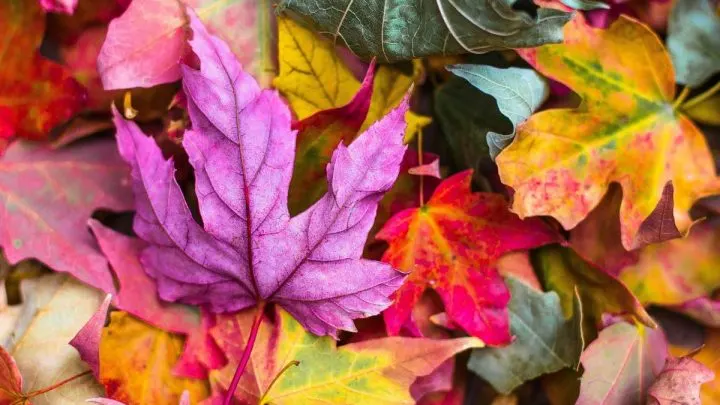In today’s article, we will talk about how long does it take for leaves to decompose. All of you who have trees in your garden, after autumn and in the autumn period, know very well the struggle with the leaves that fall in the autumn period. And leave a mess in the garden.
However, that “clutter” doesn’t necessarily have to be just a pile of clutter. It can be cleverly used for other things once it’s broken down.
Sometimes you can wait for the leaves and nature to do it themselves. And sometimes you can speed up the process.
In order to know the purpose of decomposed leaves and what they can be used for, how it all unfolds, stay with us and learn a lot about it below.
If you’re ready for some reading, then let’s get started. We have also some great plant quotes and garden quotes.
Why Do Leaves Decompose?
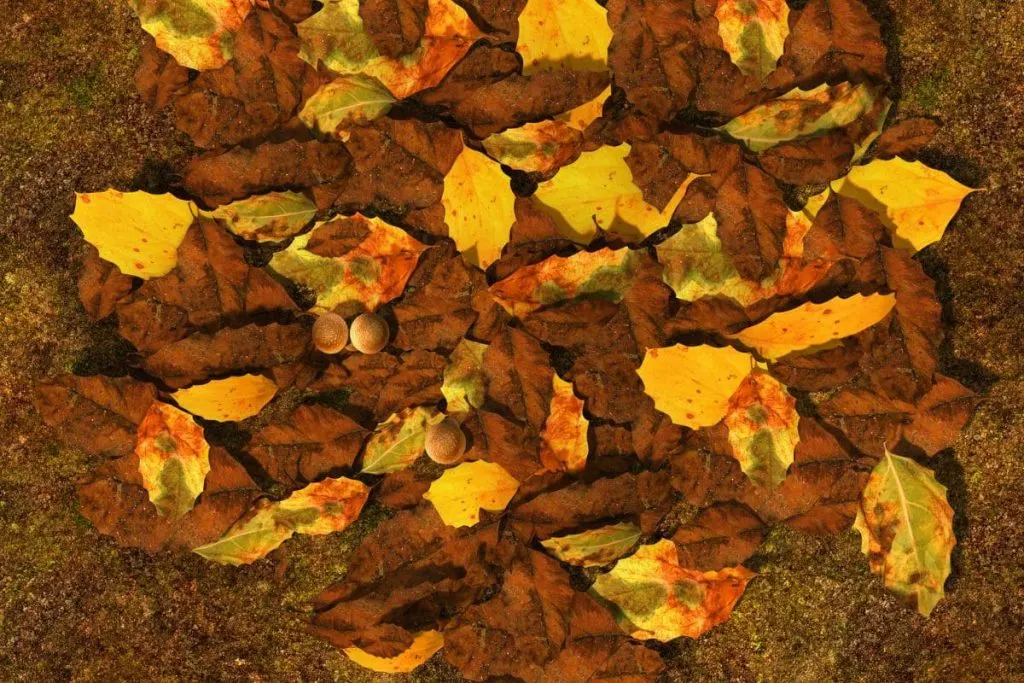
Leaves decompose because it is simply one of nature’s processes and cycles. After separating from the water vessels on the tree, the leaves fall to the ground and begin to decompose.
It is quite logical to conclude that a leaf that is on the ground and is no longer “nailed” to the branch does not have enough matter. Water, light, and everything else to remain in its primary state, it simply has to die.
When it’s on the ground, the leaves dry out. We all know that already and it also speeds up that decomposition process.
The saying when one life dies another begins definitely makes sense here. When the leaves decompose, the previous leaves die but create a new beginning for the plants. Plants that will be planted in that place or on that matter.
Decomposed leaves are excellent organic matter that works well in potting soil for flowers, various house plants, and even trees in the garden. Fallen leaves on the ground even serve as food for tiny microorganisms found in the soil.
How Long Does It Take For Leaves To Decompose Naturally?
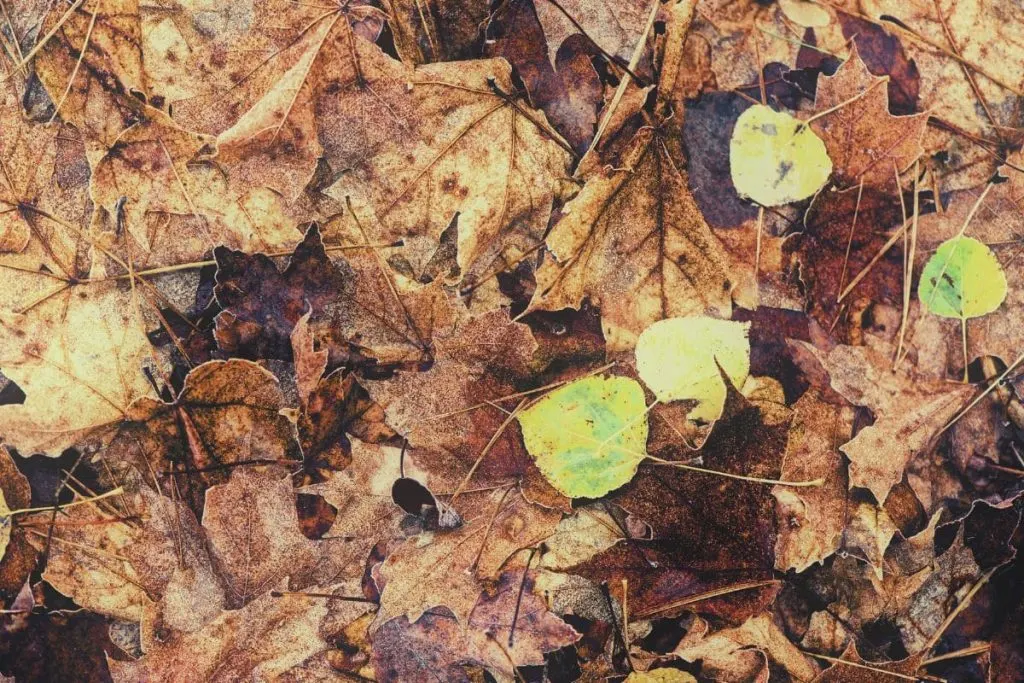
Considering that leaves do not contain nitrogen, which is necessary for decomposition. It takes between 6 and 12 months, depending on the weather, to decompose.
Of course, you can speed up this process in various ways. Once a green shrub or a beautiful green canopy, in autumn it takes on a palette of colors and then falls off.
We all know what a pile of leaves looks like in our garden. Some are happy to see it, some don’t like it at all and consider it waste, some clean it immediately, and some, for other purposes, wait for the leaves to decompose and create useful compost that they will use further.
How To Fasten Up Decomposition Process? Tipps & Tricks
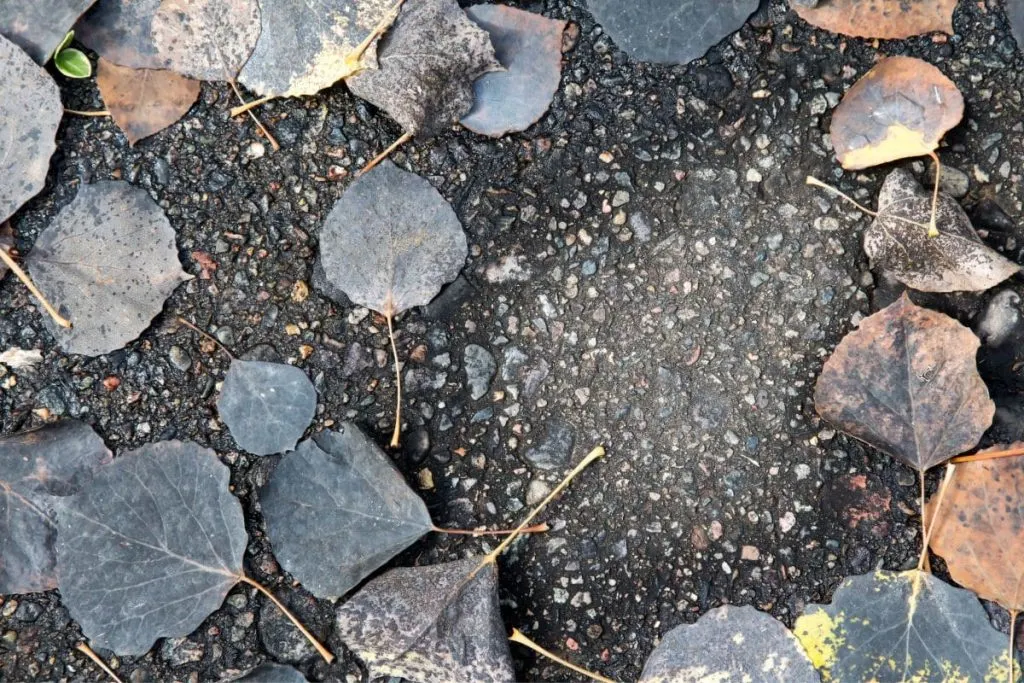
No matter how amazing it is to simply wait for the leaves to decompose naturally, we just want to fasten up that process sometimes.
It can be a bit hard if you don’t know much about it, but that is the part when we take over and learn you how to do it.
Below you’ll find 2 simple ways how to fasten up the decomposition process of the leaves in your garden.
1. Chop Up The Leaves
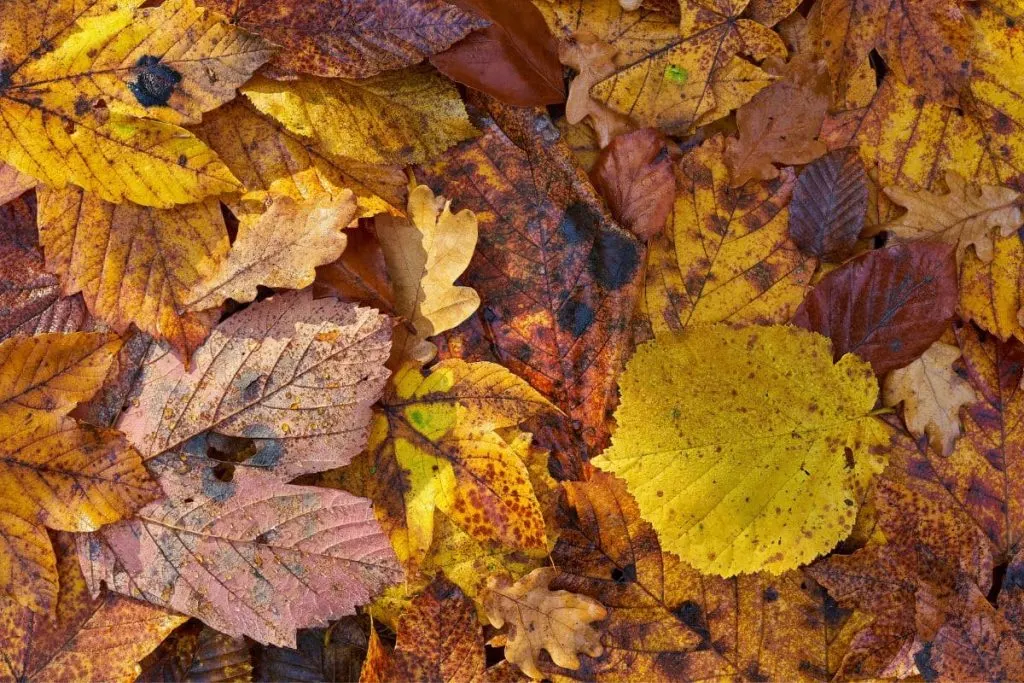
It is more than logical that once you chop up the leaves into small pieces, they’ll decompose faster.
Deciduous trees usually have a composting process a bit faster than the other trees, so make sure you note this.
In order to get compost leaves matter quickly, shredded leaves are a simple solution for it. You can place the leaves in the copper and cut them into the smallest possible pieces. You can also use a lawn mower for this.
The smaller, the better. Just imagine such garden soil. It would be the best rich soil nutrient soil structure you would ever have!
After you cut them into small pieces, you help fungi that are found in the plant roots as well to “attack” the organic matter of the leaves and start the entire process faster.
Autumn leaves now are about to become rich compost for your other plants or trees in the garden.
But don’t be desperate if this doesn’t happen in a few months. Full not shredded leaves can take even 2 years to decompose, and shredded leaves, only a year.
That’s still much better. You’ll still have home compost that makes nutrients for your plant’s soil. Of course, you’ll have to add other materials too, but more about that you’ll find below.
2. Mix Leaves With Nitrogen And Grass Clippings
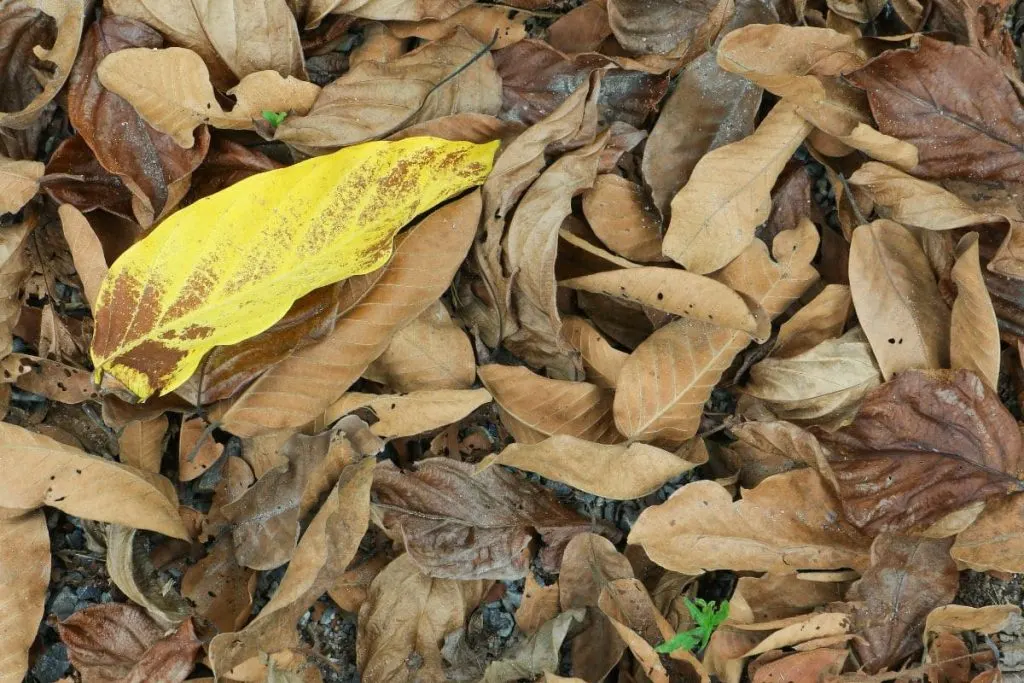
Dead leaves and dead plant material is great once it’s turned into the soil to retain moisture. They actually retain moisture much better than regular soils, even sandy soil for example.
Dead leaves decompose faster once they are mixed with nitrogen and grass clippings. Leaf compost pile properly mixed with nitrogen will fast up the decomposition process at least 3 to 4 times.
What would usually take 6 to 12 months, now takes 5 months with nitrogen and that’s highly recommendable for these things. Add nitrogen or carbon to nitrogen ratio of about 25 to 1 to leaf piles and then you wait.
Materials constantly moist compost much faster than the regular composting leaves. You should squeeze the pile before adding water. If there is a few drops coming out of that pile, it means that’s wet as it should be, but not soaking wet because that’s not needed.
You can add food waste to this as well, and with a moist environment included, and amazing shrub leaves, now composted leaves, your organic material is better than the one you can buy.
The moldy mess is gone and now you have a perfect, very good mold you can use for your next growing season. But don’t thank yourself and nitrogen only, microorganisms responsible for this are also very important in the entire process.
Compost Pile Leaves Leaf Mold Behind
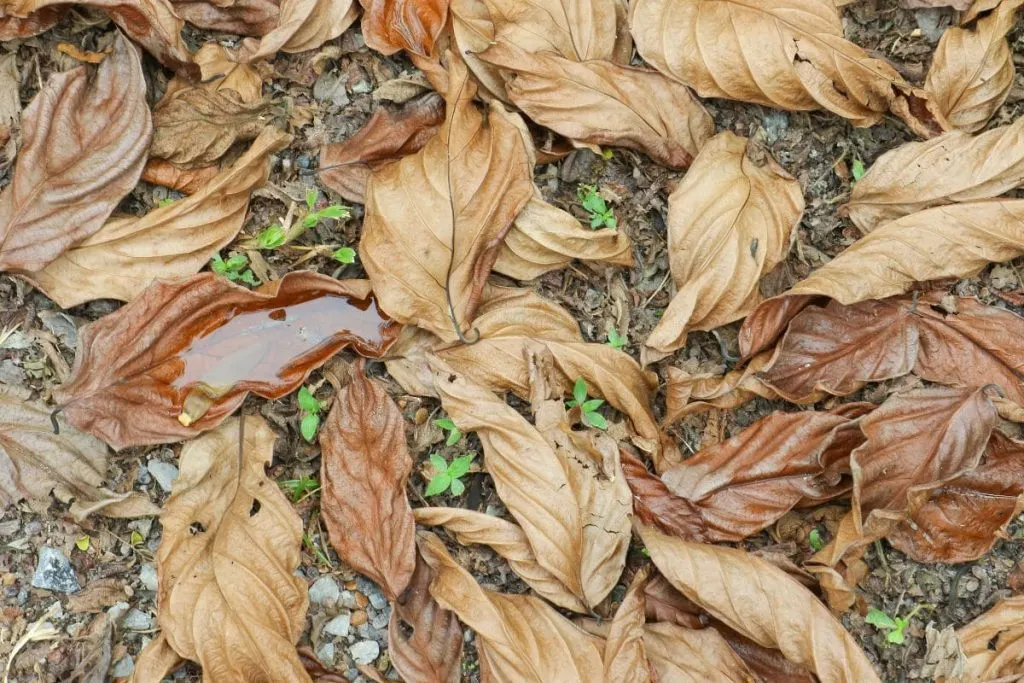
Finished compost will have mold and earthy-smelling material resulting in mold is very important for your future plants and their own growth.
Once that hyphae release acids, mold appears. Decaying leaves are super important for the biological world, plants, trees, and microorganisms found in nature.
Whole leaves have less mold once they’re on the ground, but shredded leaves are easily biodegradable and fungi called hyphae are “more active” in shredded leaves.
Due to the not equal speed process, I think you have many reasons to choose shredding leaves to decompose over full leaves for the compost pile. You should also introduce air to any compost pile you make, air circulation is also very important.
When And Why To Use Compost Bin?
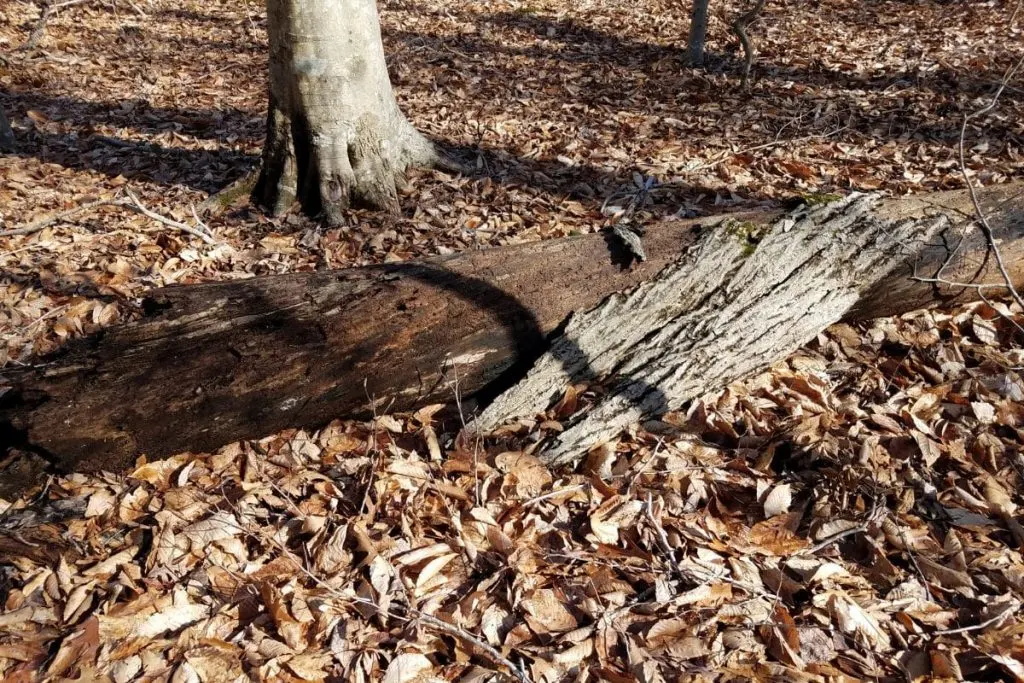
It’s a good idea to use a compost bin when you’re adding nitrogen to your compost/leaf pile. That way you’re protecting the soil around because you’re not mixing it with it.
Not any soil type likes nitrogen, so you have to pay attention to this. Also, by using a compost bin, you’re can fasten up the entire process by doing so, since there are no other matters or materials to come in the way.
Why Is Leaf Mold/Compost Good?
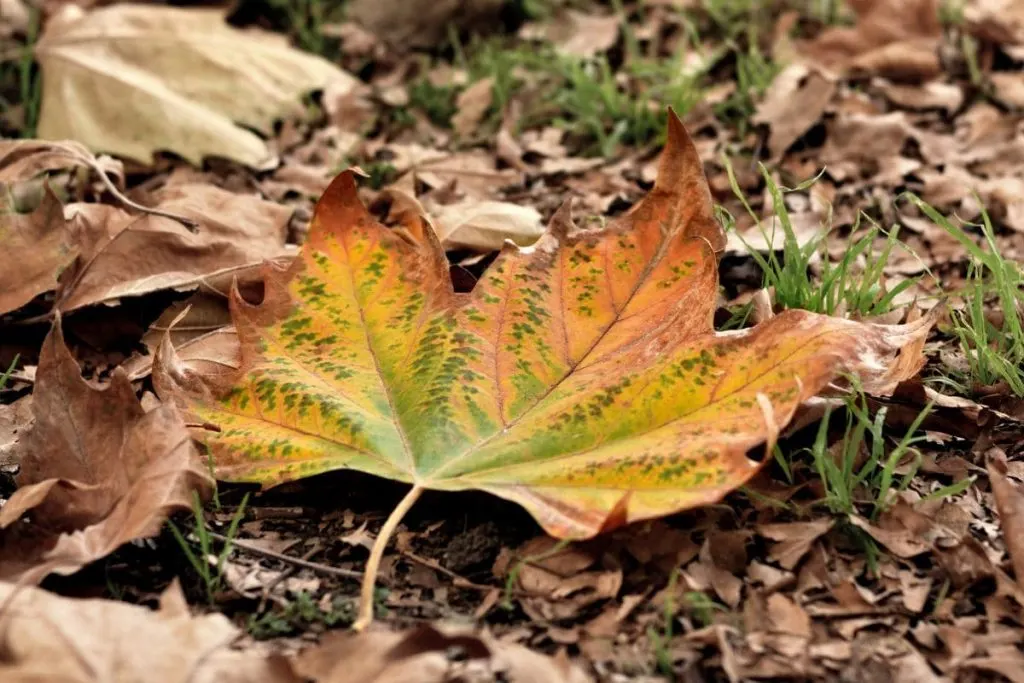
Compost leaves quickly give your plant the needed nutrients, especially when made by a string trimmer that cut them very nicely and into the small pieces before.
The smaller matter is much easier to absorb for plants since it’s equally spread organic matter.
In a good environment, with filamentous threads that operate on the roots too, and good moisture, your new plant’s green leaves will be greener than ever! But let’s discuss more of that below.
Leaf Compost Pile/Dead Plant Material Properly Used
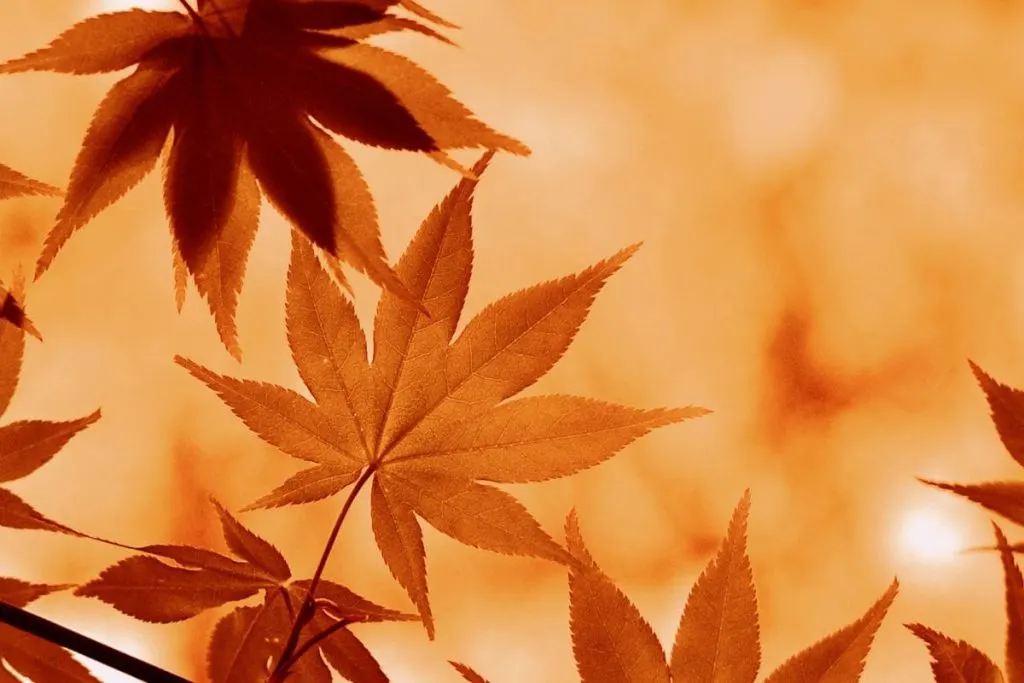
It is best to use decomposed leaves for fertilizer or soil mulching. It’s similar, but again somehow different.
When you mulch your soil, you will usually only sprinkle leaf compost on the soil where you have planted some fruit, vegetables, or plants.
Mulching is usually used in gardening when planting vegetables, starting from the fact that it promotes their growth very quickly.
However, when you fertilize the soil with decomposed leaf compost, then you will combine that resulting compost with other things to really get a “strong” fertilizer that will work great for your plants.
In this case, you mix leaves with green waste material in a ratio of 60:40. Leaf mold is just leaves mixed with water, so you definitely need to add something to it to make it nutrient-rich.
FAQ – How Long Does It Take For Leaves To Decompose
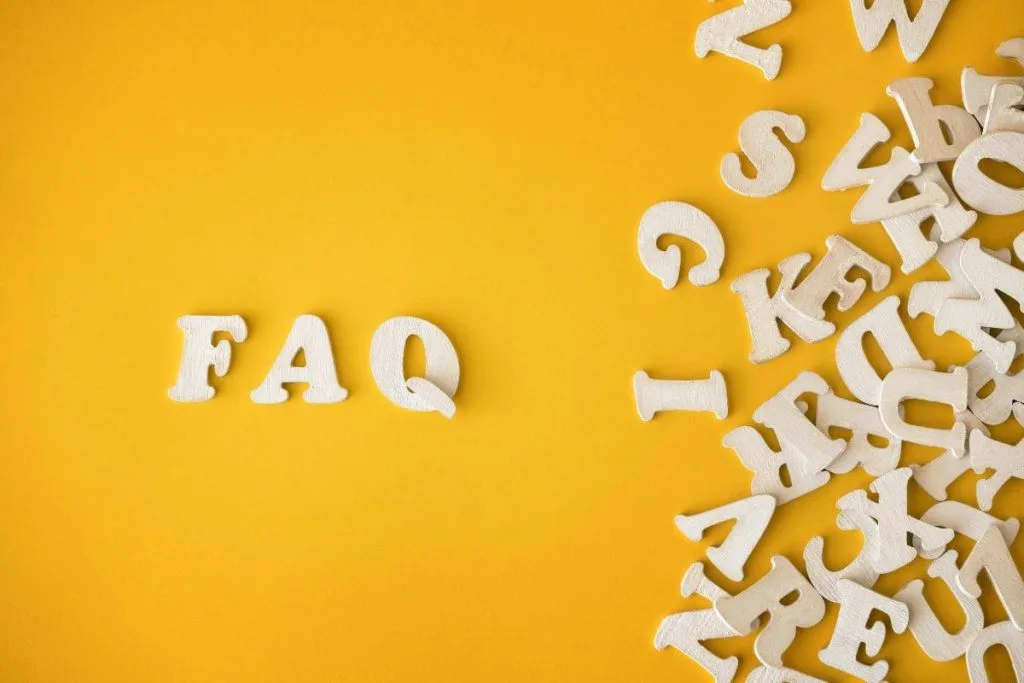
As always, we made sure to answer all your questions about this topic. Today we will also try to answer the remaining questions regarding the decomposition of leaves, leaf mold, leaves munch, making fertilizers from these substances, and the like.
Do Leaves Become The Dirt?
Since soil can lose nutrients around the year during the weather or lack of fertilizer, this “type of dirt” gives it back to the soil.
Can I Just Add Fall Leaves To The Soil?
Meanwhile, the leaves can also be a good station for the pests to appear and due to the leaves, you may not spot them so easily.
Final Thought On How Long Does It Take For Leaves To Decompose
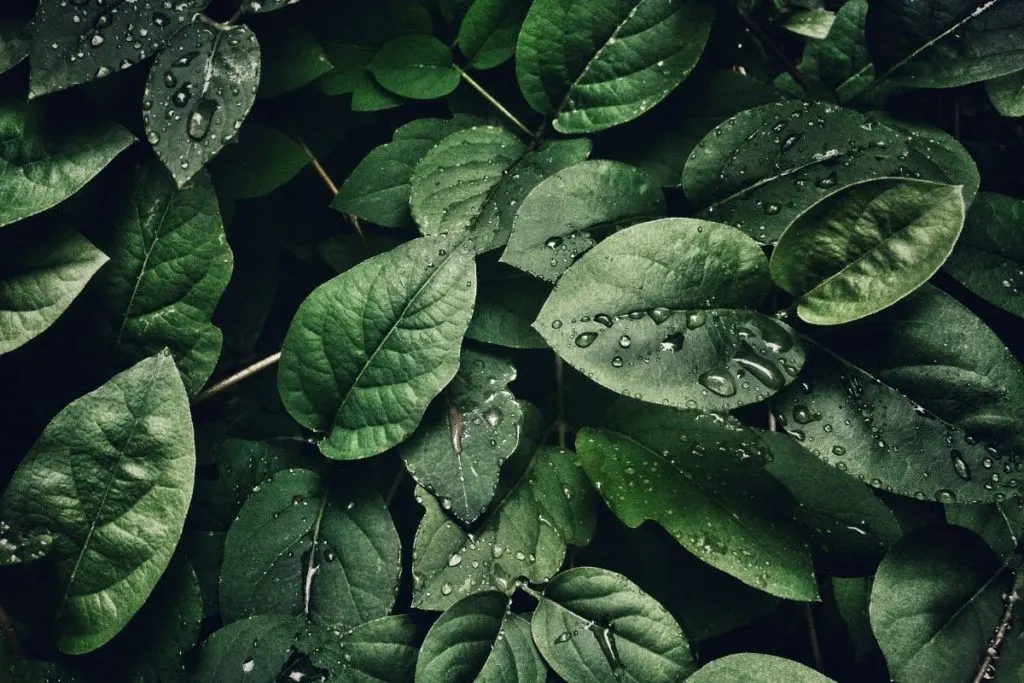
This fall, when you see that the leaves have fallen from your trees in the garden, you don’t have to be upset. Instead of thinking about the mess, you have to clean up, get a rake, and a bucket, and collect them in one place.
What may seem like a mess this fall, can be great come spring for other plants you plan to grow in your garden. After a short reading, you now know how long does it take for leaves to decompose.
Decomposed leaves now have a purpose, and thanks to today’s article, you know how to turn such leaves into fertilizer for your plants.
If you didn’t know this before, from today you know for the future what to add, and how to break down the leaves in a faster process.
That would be all for today! See you soon with more similar topics.

